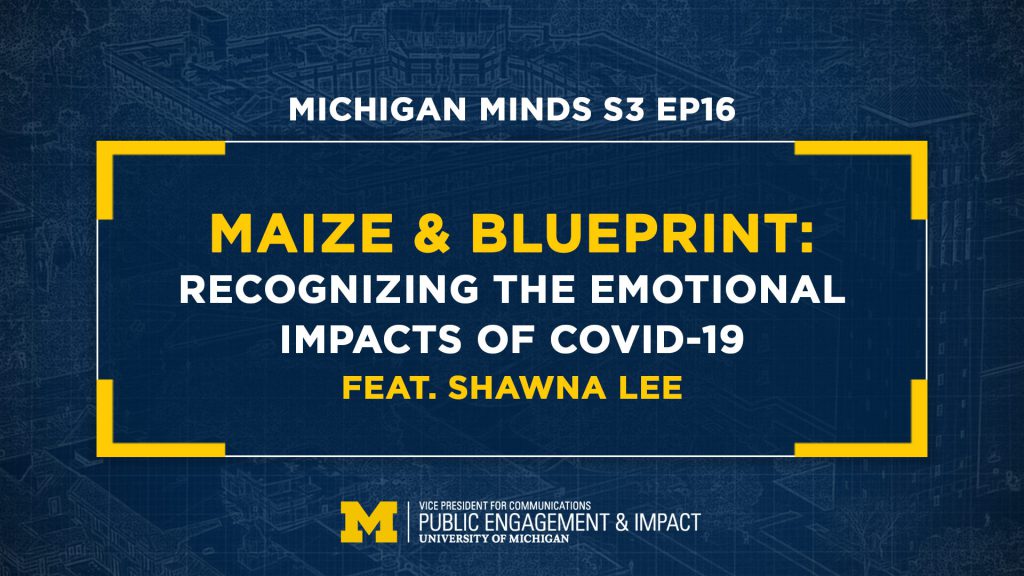Maize & Blueprint: Recognizing the Emotional Impacts of Covid-19
August 11, 2020

ANN ARBOR – In this episode of Michigan Minds, Shawna Lee, associate professor at the School of Social Work and faculty associate at the Research Center for Group Dynamics (RCGD) at ISR, talks about how COVID-19 has impacted everyone differently, and shares some ways faculty can recognize the toll it has taken on their students and colleagues.
Lee conducted a study in March and April to better understand how people were adjusting to the rapid transition to remote education, remote work, and the closure of many of the places they were used to visiting. . The survey asked about depression, anxiety, loss of sleep, and other symptoms of distress that people might be feeling as a result of the pandemic.
“In our survey, we documented some very high rates of anxiety, depression, and other mental health distress,” she says. “And in our study, we found much higher rates of depression and anxiety.”
Considering the factors that came with the pandemic—unemployment, school closures, and general uncertainty—Lee says she isn’t surprised by the high emotional toll: bout 32 percent of respondents, she says, met the criteria for probable major depression, and about 50 percent had symptoms indicative of mild, moderate, or severe anxiety.
“The things that we were hearing about being preoccupied with the pandemic, being very unsure about the future, feeling depressed, feeling hopeless, having trouble falling asleep: those were manifesting in greater levels of depression and anxiety, and the survey sort of confirmed that suspicion.”
As the U-M community prepares for the start of a new public health-informed semester, Lee says it is important to acknowledge that the pandemic has affected virtually everyone in some way.
“I think for Michigan faculty, students, and staff, it’s really important to keep in mind that the pandemic has affected all of us in some similar ways and some different ways. Of course, the similarity may be that we’re experiencing emotional and mental health distress,” she says.
Lee encourages everyone to be patient and forgiving as the university adapts to a new hybrid approach to teaching and learning, and to acknowledge that people are probably struggling in a lot of different ways.
“From my perspective, the lack of in-person contact is a big change for my work. It’s an emotional loss because as faculty, we value those interactions and we derive a great deal of joy and satisfaction from being able to talk to our students, contribute to their learning, and hear from them,” she says, adding that many of those important conversations will be happening on Zoom but might still feel like a loss.
“For students, I’d also really encourage them to remember that the mental health resources available on our campus are very robust and continue to be available to students,” she says.
Listen to this episode of Michigan Minds.
Read the transcript
Learn more about taking care of Maize & Blue at campusblueprint.umich.edu/care
